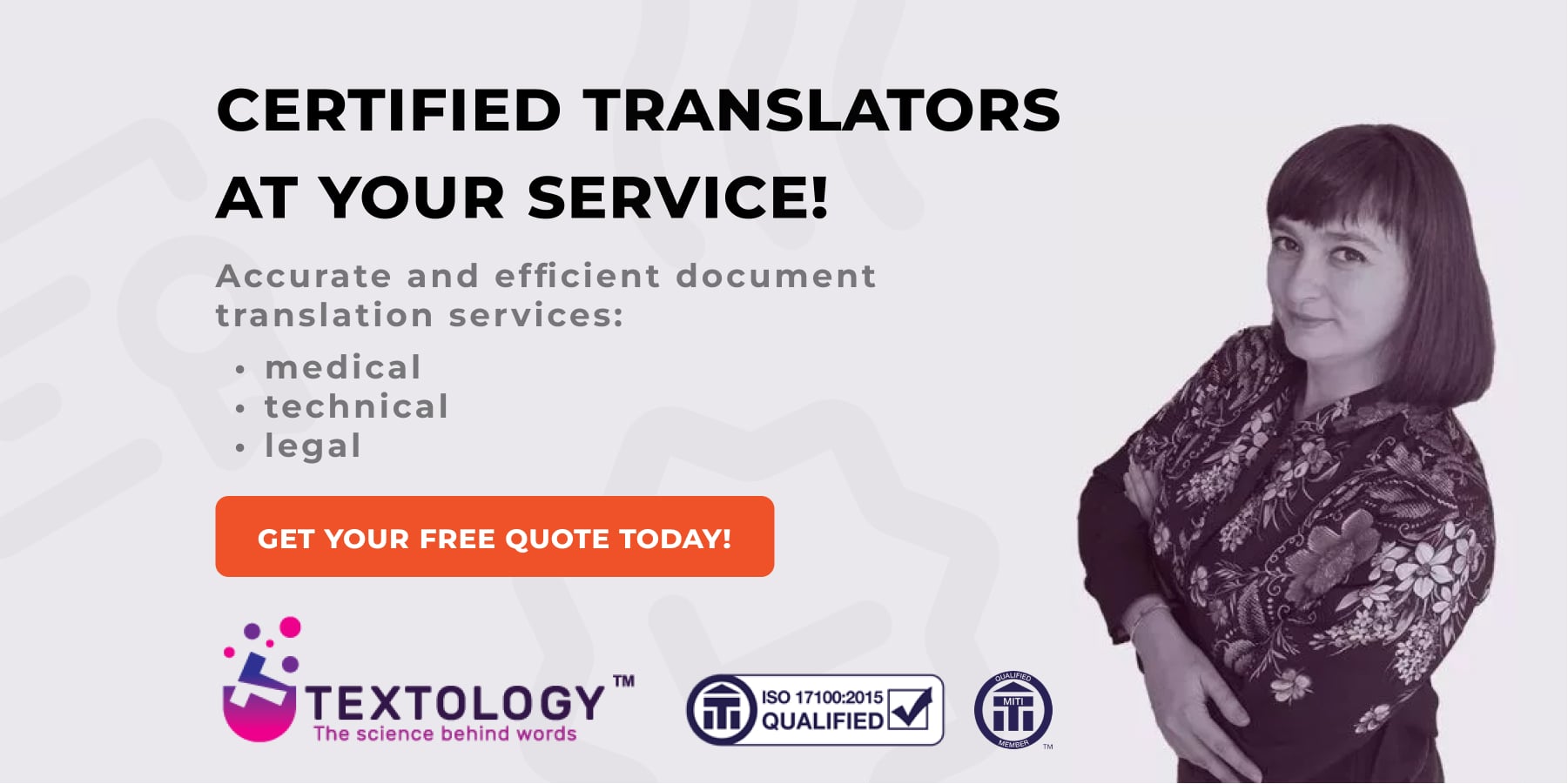
Certified translations are usually public documents submitted to institutions or third parties. Who can provide such translations in Poland and the UK? What types of documents must be certified by a translator?
What is certified translation?
In Poland, certified translations must be made by a sworn translator – a person who has the right to certify the authenticity of the translated document and its compliance with the original. A sworn translator is a person of public trust. In the UK, there are no sworn translators. Official documents are translated by specialists in the field of law.
In Poland, a document certified by a sworn translator must be marked with his/her seal, name, and surname. The document must also include information about whether it is certified in accordance with the original or a copy. Each translation is also entered in the Sworn Translator’s Repertory, and the document must include the number under which it appears in the repertory.
Translation of documents from Polish into English in Poland by a sworn translator is respected in the UK.
In what situations should you consider certified translation services?
Certified translations usually involve official documents to be submitted to the institutions or third parties. Not all documents need to be translated by a sworn translator. Those that are intended for personal use are not subject to such a requirement. Certified translations are required for medical recommendations or medical records, but also documents intended for internal circulation in companies.
Examples of documents requiring certified translation
Private individuals use the services of a sworn translator to translate documents such as:
- Birth certificates
- Marriage certificates
- University diplomas
- Certificates of completion of courses
- Medical certificates
- Registration card and vehicle card
- Notarial acts
- Criminal record certificates.
Business clients often require certified translations of:
- Company contracts and statutes
- Court decisions and judgements
- An extract from the Register of Entrepreneurs (KRS)
- Certificates from the Social Insurance Institution (ZUS)
- Extracts from the Commercial Register
- Certificates for assigning a REGON number.

Interpreting and certified translation
A sworn translator also provides interpreting services. Certified interpreting is required at court hearings in which foreign speakers take part. Such translations are certified with the name and surname of the translator and are submitted in official documents.
Certified interpreting services are used by both individual clients and companies. They are needed, for example, during the official reading of a notarial deed. A sworn translator may also be required if a couple is getting married and one of the newlyweds is a foreigner.
Is it necessary to use the services of a notary to authenticate documents?
A notary is necessary to establish the credibility of public documents. The notary draws up a certificate, which concerns, among others, the authenticity of the signature, the date appearing on the document, and the person’s presence in a specific place.
In this case, if you use the services of a sworn translator, does the document also need to be certified by a notary? The law clearly states that a certified translation is the same as the document’s authentication by a sworn translator. Therefore, notarial certification is not required.
We invite you to use the services of the TEXTOLOGY – translation agency based in London. We provide certified translations in the following fields: legal translations, medical translations, and technical translations.

